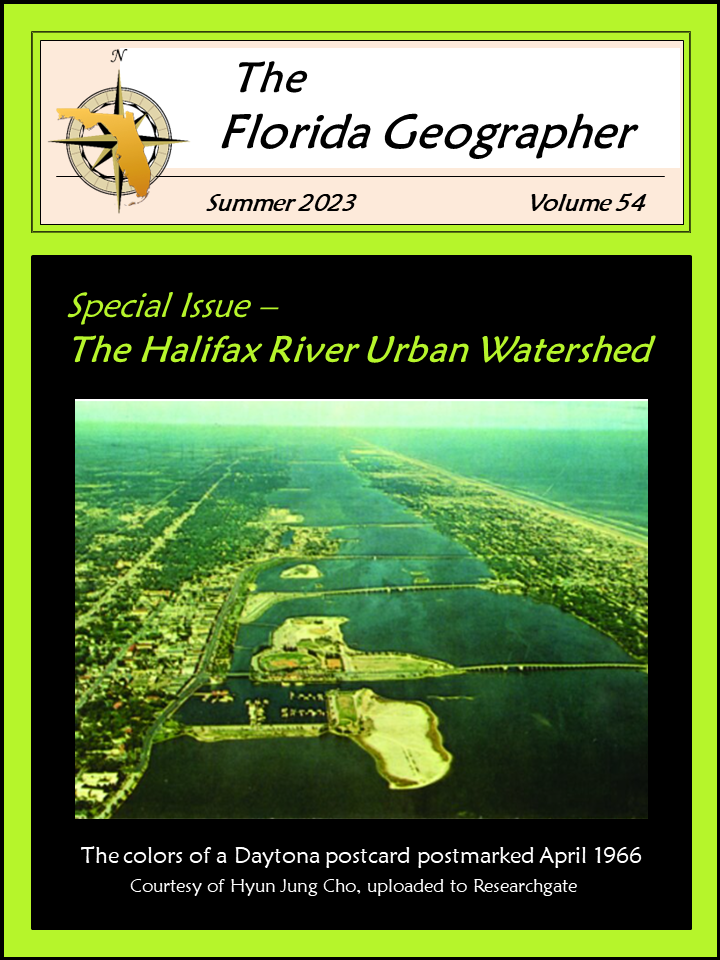The Timucua, Traditional Environmental Knowledge, and the Possibility of Restorative Justice in the Halifax River Urban Watershed
Abstract
The Timucua were an Indigenous people who lived in what is now southern Georgia and northern Florida, including the Halifax River watershed. A relatively settled and thriving culture in the region, they tended to remain in the same location for extended periods, assumedly gaining extensive knowledge of their inhabited areas. Today, no remaining members of this culture are among us as they all but disappeared by 1763, primarily from exposure to diseases brought by Europeans who settled the area beginning in the sixteenth century. Morally, when encountering an injustice, addressing that injustice is the ethical response. However, the specified injustice to the Timucua people occurred hundreds of years ago, was arguably unintentional, and none of those who experienced it remain. Given this situation, restorative justice (very different from retributive justice) is a procedure that can lead to a recognition of how justice, in some way, can still be done. From the perspective of restorative justice, working toward the robust inclusion of traditional (indigenous) environmental knowledge to the extent that it exists might represent the best that can be done, might illustrate a response to the historic harm, and at the same time might also generate a fuller understanding of the watershed. Thus, the inclusion of traditional environmental knowledge into the study of the Halifax River watershed might represent a sound and just response in light of the harms that the Timucua faced so long ago.

